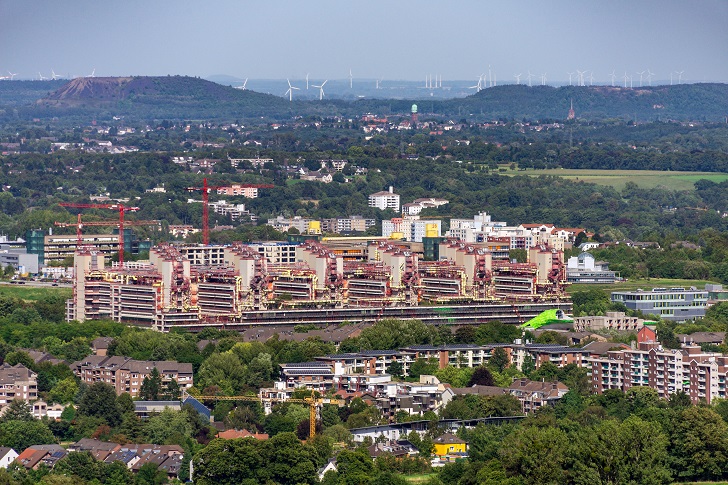
Making surface water fit for public consumption requires the removal of microorganisms as cost-effectively as possible. Here’s how Pentair’s X-Flow membranes deliver reliable, cleaner water for 600,000 people at Germany’s largest ultrafiltration treatment plant.
In the treatment of surface water to drinking water, public health and the safe removal of microorganisms has the highest priority. The next priority is usually to do this as reliably and cost-effectively as possible. In Roetgen, Pentair X-Flow's Xiga 40 membrane modules have served 12 years in continuous operation, with only eight years expected.
Roetgen is a municipality on the northern edge of the Eifel. Behind a 35 m high dam, the Dreilägerbach has formed a large reservoir for the production of drinking water. If water was not constantly flowing in, this reservoir could provide water for about a month. The Roetgen waterworks produces drinking water for the metropolitan area of Aachen, the town Düren and even the municipality of Vaals and the town Kerkrade in the Netherlands and are operated by the water extraction and processing company (WAG) Nordeifel mbH. Sustainable solution While in some parts of the world membrane technology already plays an important role in the drinking water supply, this is not yet the case in Germany. "Our ultrafiltration membrane plant is one of the largest and most advanced in Europe, and by far the largest in Germany," says Walter Dautzenberg, technical director of WAG Nordeifel. "Every year we deliver around 35 million cubic meters of drinking water to more than 600,000 people. The raw water comes exclusively from dams in the Eifel."
Membrane advantages The main advantages of membrane technology are the low use of energy and the elimination of turbidity and microbiology. The addition of chemicals such as chlorine is usually not required as pathogenic germs are retained by the membranes. Increasingly smaller pore sizes serve different purposes in drinking water treatment: microfiltration and ultrafiltration for particle removal, nanofiltration and reverse osmosis for softening and desalination.
The plant was put into operation in December 2005. Dautzenberg said: "Our plant started operating in December 2005. Before that we had a normal, two-stage open rapid filtration plant, a classic sand filtration operation as is typically used in Germany to produce drinking water from reservoir water. At the time our plant had already been in operation for over 30 years, and we were considering how best to renew it. When the planning calculations with conventional and membrane technology showed about the same economics, we decided in favour of membrane technology because it appeared to be more future-proof and because the cleaning performance is significantly better".
Membrane-based treatment is also much better to handle changing raw water qualities, making operation much more stable and reliable. The Pentair X-Flow Xiga 40 membranes have far exceeded expectations. According to Dautzenberg: "We counted on eight years, we hoped for ten years, and they have worked well for over 12 years. We have never used chlorine to clean the membranes, which contributes to a longer life. The number of leaks in the membranes was also much lower than expected, averaging four per month".
The microbiological activity was always inconspicuous , which was not always the case with sand filtration. This plant has significantly improved the stability of the treatment process and particle retention."



